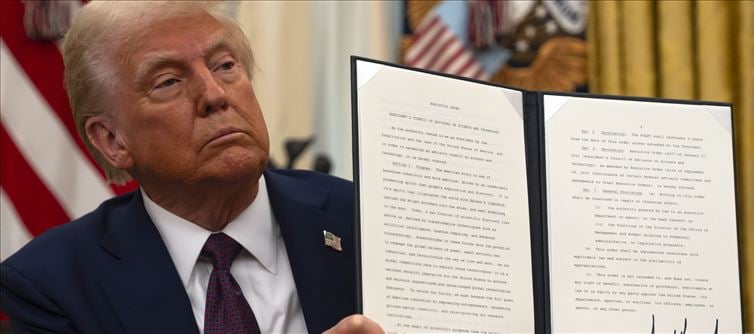
Donald trump eliminated job reservations in the US government within hours of becoming the 47th President of the United States. With the flourish of his calligraphic signature, he took this enormous stride in a matter of seconds. Many private enterprises in the united states quickly followed suit. This marked the conclusion of a journey for America's varied society that started with john F. Kennedy and was continued by nearly all US presidents after him.
Priority admissions to educational institutions and job reservations have long been contentious issues in India. The outcome of last year's lok sabha elections was significantly impacted by worries that reservations for Scheduled Castes, Scheduled Tribes, and other backward classes would be eliminated or decreased. However, india has not even reacted to this historic judgment in the oldest democracy in the world.
Americans excel at giving programs names that make them seem far more prestigious than they actually are. Therefore, an attempt to eradicate prejudice against weaker segments of society in the workplace amid the opulence of the Camelot era of President Kennedy became formally called "affirmative action." Six weeks after taking office in 1961, trump announced Kennedy's program, which he essentially rescinded on january 20. Kennedy used an executive order, much like Trump. President barack obama formally renamed affirmative action "diversity and inclusion" in 2011.
Trump has now charged Joe Biden, his direct predecessor, with "DEI madness." DEI became the abbreviation for diversity, equality, and inclusion during the Biden administration. The letter 'A' was introduced to DEI very recently in order to incorporate accessibility.
Since Kennedy, no president has opposed affirmative action more than Ronald Reagan. He issued an executive order prohibiting the setting of recruiting targets and job quotas. However, because of resistance in both Houses of congress and among labor unions, he was unable to completely repeal affirmative action. Reagan, however, supported well-defined initiatives to establish minority-owned and minority-operated businesses.
By the way, Reagan was the first American president to name an Indian-American to a post that needed presidential nomination at a government agency. He added Joy Cherian to the Equal Employment Opportunity Commission in 1987. The Civil Rights Act of 1964 created this commission to enforce anti-discrimination rules in workplaces.
In the US, opposition to DEI, which is essentially equal to reservations in india, has been growing over time. Compared to any campaign opposing only affirmative action, which was limited in breadth and scale, it has been far more powerful. Affirmative action policies, according to Republicans in particular, have turned into a kind of reverse discrimination in a culture that values equality.
Priority admissions to educational institutions and job reservations have long been contentious issues in India. The outcome of last year's lok sabha elections was significantly impacted by worries that reservations for Scheduled Castes, Scheduled Tribes, and other backward classes would be eliminated or decreased. However, india has not even reacted to this historic judgment in the oldest democracy in the world.
Americans excel at giving programs names that make them seem far more prestigious than they actually are. Therefore, an attempt to eradicate prejudice against weaker segments of society in the workplace amid the opulence of the Camelot era of President Kennedy became formally called "affirmative action." Six weeks after taking office in 1961, trump announced Kennedy's program, which he essentially rescinded on january 20. Kennedy used an executive order, much like Trump. President barack obama formally renamed affirmative action "diversity and inclusion" in 2011.
Trump has now charged Joe Biden, his direct predecessor, with "DEI madness." DEI became the abbreviation for diversity, equality, and inclusion during the Biden administration. The letter 'A' was introduced to DEI very recently in order to incorporate accessibility.
Since Kennedy, no president has opposed affirmative action more than Ronald Reagan. He issued an executive order prohibiting the setting of recruiting targets and job quotas. However, because of resistance in both Houses of congress and among labor unions, he was unable to completely repeal affirmative action. Reagan, however, supported well-defined initiatives to establish minority-owned and minority-operated businesses.
By the way, Reagan was the first American president to name an Indian-American to a post that needed presidential nomination at a government agency. He added Joy Cherian to the Equal Employment Opportunity Commission in 1987. The Civil Rights Act of 1964 created this commission to enforce anti-discrimination rules in workplaces.
In the US, opposition to DEI, which is essentially equal to reservations in india, has been growing over time. Compared to any campaign opposing only affirmative action, which was limited in breadth and scale, it has been far more powerful. Affirmative action policies, according to Republicans in particular, have turned into a kind of reverse discrimination in a culture that values equality.




 click and follow Indiaherald WhatsApp channel
click and follow Indiaherald WhatsApp channel